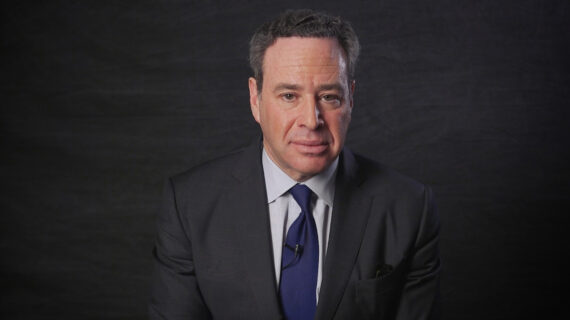Review of Slouching Towards Utopia: An Economic History of the Twentieth Century
Author: J. Bradford DeLong
Publisher: Basic Books, 2022
J. Bradford DeLong’s long-awaited book Slouching Towards Utopia is finally here, but despite its door-stopping size of 180,000 words, it’s surprisingly easy and breezy to read. Delong’s politics are unabashedly left-wing, having served in the Clinton administration, and has taught economics at the University of California at Berkeley since 1993. Professor DeLong is a polymath who knows much about economics, history, and philosophy, and here his talents are on full display. But talent often comes with a healthy ego. He “flambeed no fewer than 11 people as the stupidest man alive,” as one reviewer described. This includes his famous feud with the great economic historian Niall Ferguson. DeLong gained a loyal following from his endless blogging. That may explain why it took almost 30 years to finish his opus magnum.
But finish it, he did, and it’s a fantastic read, if not a bit weird in places with an unapologetic leftist bias. (No surprise here, given that DeLong was inspired by socialist historian Eric Hobsbawm’s classic book on the twentieth century entitled The Age of Extreme, which goes from 1914 to the fall of the Soviet Union in 1991.) In no other book on economic history would you find the poetry of Rudyard Kipling or the colourful career of Herbert Hoover, a description of the neurosis of Nikola Tesla or witty allusions to Greek mythology. And here’s the best part: you don’t have to be an economist or historian to enjoy this book or reach for the smelling salts to revive you from boredom.
His “grand narrative” is that the long 20th century started in 1870 and lasted until 2010. The year 1870 stands out as the moment in time when production and productivity were high enough to begin raising living standards. Until then, Thomas Malthus’s “devil” was at work where population growth subsumed any improvement in technology growth.
It took almost 100 years from the start of the Industrial Revolution to see the benefits of an economic miracle that finally got off the ground, dragging part of the world into the modern age. It was a slight shift at first, but the momentum of technological change gradually transformed life on earth freeing humanity from hand-to-mouth misery. Before 1870, 70 percent of humanity lived on a standard of living of $3 a day, a level of income that hadn’t changed for thousands of years, to a daily average of $15 in poorer countries and $130 in richer ones. These numbers don’t consider the vast improvement in the quality of goods to the point that even the poor have access to cell phones and health care. Nobel economist Angus Deaton said, “children in sub-Saharan Africa are more likely to survive to age five than English children born in 1918.” The poor may not always be with us.
DeLong argues that the miracle behind economic growth was the happy coincidence of three factors: globalization, the invention of the large modern corporation, and the industrial laboratory. He admits these weren’t the only factors, but he identifies them as the most important in pushing us toward utopia. It’s a puzzle why he left out property rights or the quality of public institutions and, perhaps most important, the rise of liberalism.
According to economic historian Deirdre McCloskey, the gift of equality under British law, where everyone had the opportunity (and right) to “have a go”, improved the machinery of production and led to a better life. Free markets don’t guarantee success, but they allow anyone to get into the game for ill or good. With that freedom, we find that talent isn’t restricted to any class, gender, or race.
Throughout the book there are surprises—both good and bad. Despite DeLong’s respect for leftist politics and evident admiration for Karl Marx, he admits Marx was wrong on bourgeois capitalism. “It is simply not the case that market economies produce ever-rising inequality and ever-increasing immiseration.” (As an aside, DeLong hardly uses the word “capitalism” and prefers the term “market economy”, which is a plus in his favour.) On the negative side, DeLong was wrong in his spurious attack on the political scientist Charles Murry’s 1984 ground-breaking book Losing Ground. DeLong blames racism for the plight of the black American family. At the same time, Murray, along with Senator Daniel Patrick Moynihan, showed that the cause of poor black performance was disastrous public policy.
So why are we now slouching to utopia? His answer is a world dominated by too much market economy or what he calls the “Mammon of Unrighteousness.” Here DeLong splits the world into the pro-free market philosophy of economist and Nobel Prize winner Friedrich von Hayek and the Hungarian-Canadian critic of laissez-faire capitalism Karl Polanyi. Slouching Towards Utopia highlights the push and pull of ideas of both thinkers, coming down on the side of Polanyi’s view of the world, while Hayek is exposed to DeLong’s rough treatment.
Skipping over 140 years, we come to 2010 and the decline of prosperity’s arc. Why 2010? The author has no specific answer or dramatic event that brought the miracle of growth to an end. But he does make some guesses, such as the loss of America’s hegemony and exceptionalism, the misadventures of endless wars in the Middle East after 9/11, and the financial meltdown of 2008. The economic pie was getting smaller as the productivity engine sputtered to a crawl. We now have a smaller economic pie—divided to benefit the plutocrats—thus bringing “the long twentieth century’s story to a close.”
One could have ended the history of the twentieth century with the same grim news in the late 70s with stagflation and high levels of unemployment. Or the 80s with interest rates over 20 percent while the economy was ravaged by high inflation and the stock market crash of 1987. How about the collapse of the dot coms in the late 90s?
Did DeLong jump the gun on the end of growth? After two full years of economic shutdown from COVID, Western technology, in record time, came up with an effective vaccine while AI and biomedical engineering are just getting started with promises of extraordinary breakthroughs. DeLong probably would agree that the endpoint was arbitrary and that economists make lousy prognosticators, especially about the future.
Leaving aside Professor DeLong’s sympathy for more government, it would be a shame to miss out on a great read just because of one’s political differences.




